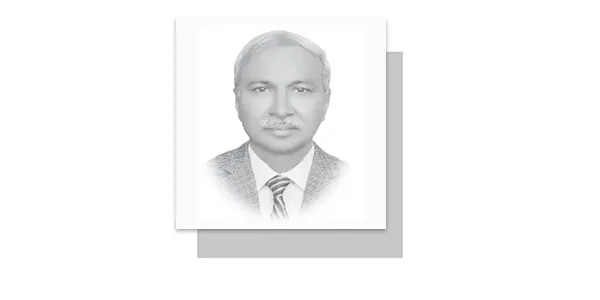The creation of Pakistan is the result of the selfless and tireless efforts of Quaid-e-Azam Muhammad Ali Jinnah.
Human history repeatedly shows that only those nations survive with dignity that not only remember the services and guidance of their leaders but also take it upon themselves to propagate and uphold their teachings.
However, today, we see that we have forgotten the guidance and principles of our leader.
The purpose of Pakistan’s creation was to establish a completely free republic, whether viewed from an Islamic perspective or modern ideals.
Today, everything has changed in our country.
Democracy can only be maintained if the rule of law applies equally to everyone, regardless of their status.
If the law disappears, only lawlessness and chaos remain.
Quaid-e-Azam envisioned a state where complete democracy prevailed, where the sovereignty of the people and supreme authority were practically recognized—a state where everyone had equal opportunities for happiness and prosperity and could contribute to public welfare according to their abilities.
In the words of Quaid-e-Azam, it would be a state where the principles of social justice, based on Islamic values, would have the freedom to flourish.
Although democratic provisions were included in the constitution, the true spirit of democracy has not yet been realized.
We have witnessed the manipulation of individuals and parties, along with the conspiracies that followed, but the desire to see genuine and complete democracy remains unfulfilled.
Since the creation of Pakistan in 1947, many events have unfolded, yet the hopes, wishes and expectations envisioned by Quaid-e-Azam and Allama Iqbal remain unachieved.
Throughout these years, numerous developments have led to disappointment.
The Pakistan Movement and Quaid-e-Azam’s leadership unified and organized the Muslims, with their ideological foundation rooted in nationalism, which in turn was grounded in Islam.
However, the method of achieving this was democratic from the very beginning.
Throughout the challenging stages of Pakistan’s creation, Quaid-e-Azam never took a single step without first convincing the nation through democratic means.
Therefore, democracy is the foundation of Pakistan, as its very creation was achieved democratically.
If we wish to realize the dreams of the leaders of the Pakistan Movement while preserving our traditions, individuality, identity, morals and spiritual values, we must govern the country through the same methods that led to its creation.
These methods involve running the country with due respect for the will and cooperation of the people, as history and Quaid-e-Azam’s legacy dictate.
During the first anniversary celebrations of Pakistan’s creation, Quaid-e-Azam was unable to attend due to illness.
However, in his message to the nation on this occasion, he stated:
“Remember, the creation of Pakistan is a reality with no precedent in the world.
I have trust in my people.
Our enemies loudly proclaim that Pakistan will go bankrupt and their hearts rejoice at the thought of Pakistan’s economic collapse.”
Yet, if we examine our present situation, we find ourselves moving in the opposite direction of what the Quaid had envisioned.
Quaid-e-Azam taught every institution to respect its defined boundaries—a lesson that has now been forgotten by all.
Everyone disregards their responsibilities and interferes in matters for personal gain and self-interest.
—The writer is contributing columnist, based in Faisalabad. (ranazahid4@gmail.com)


















